IMPLANT DENTISTRY
DENTAL CROWNS
DENTAL BRIDGES
Root Canal
SMILE AESTHETICS
Dental Veneers

IMPLANT DENTISTRY
DENTAL CROWNS
DENTAL BRIDGES
Root Canal
SMILE AESTHETICS
Dental Veneers

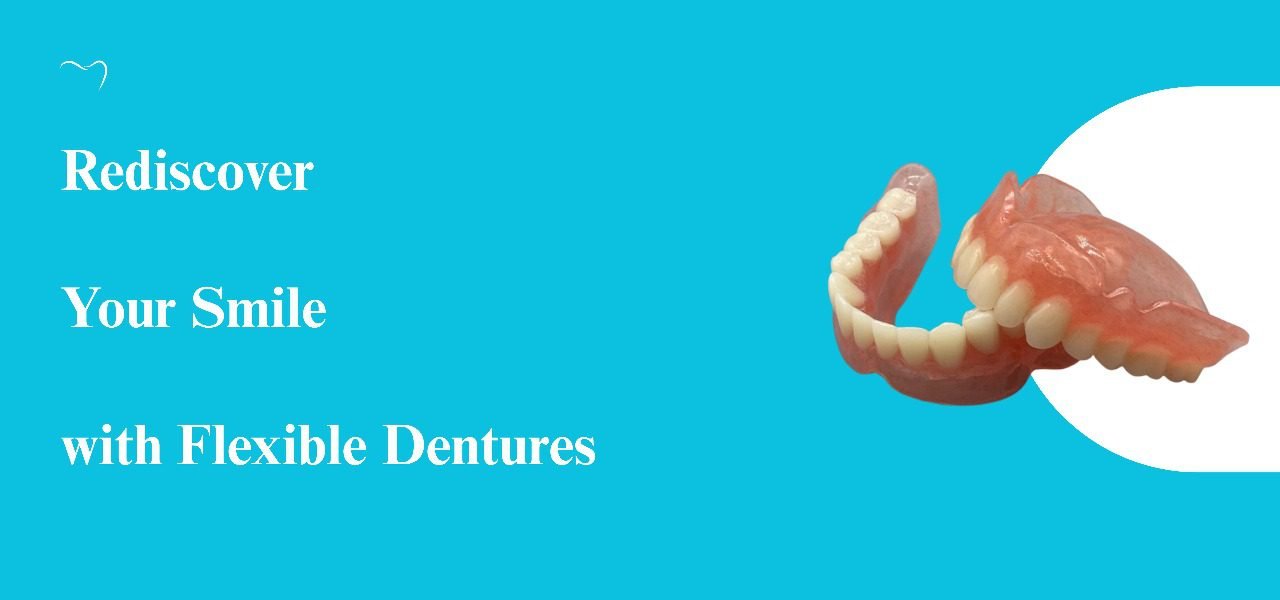
There are numerous reasons someone might lose a tooth or several teeth, including medical conditions, accidents, or natural causes.
Missing teeth can hinder a person’s speech or ability to eat solid foods. As a result, orthodontists found several methods to help patients; the most commonly used are dentures. Previously, people used rigid, standard acrylic dentures, but today they are opting for a more comfortable, aesthetically pleasing solution that is as durable as real teeth and even more comfortable than the old ones. This new solution is flexible dentures.
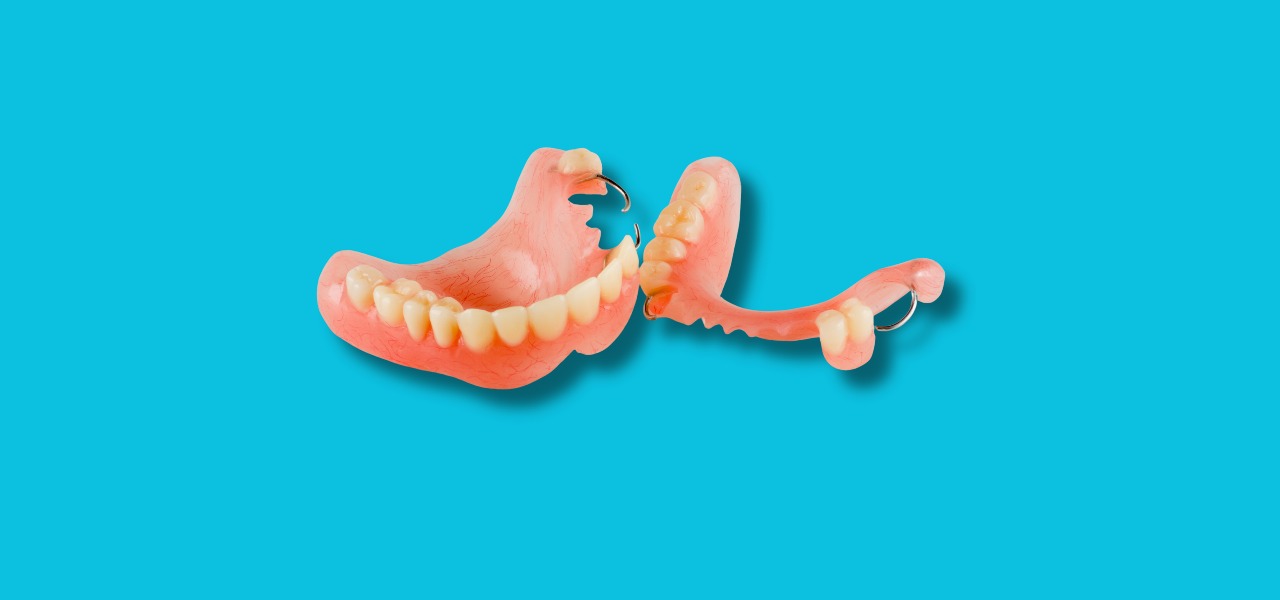
Flexible dentures are a partial denture type typically made from a soft, flexible material. They are a non-invasive alternative solution to surgical dental implants. They are usually made from nylon-based thermoplastic resins. Brands such as Valplast and Flexite are recognised for offering premium, flexible dentures, as noted in this paper.
The simple answer is that flexible dentures are comfortable, durable, and aesthetically pleasing.
They have several other advantages, which are listed below.
Flexible dentures are custom-designed to your own teeth; the base is made from a translucent material that blends perfectly with your gums.
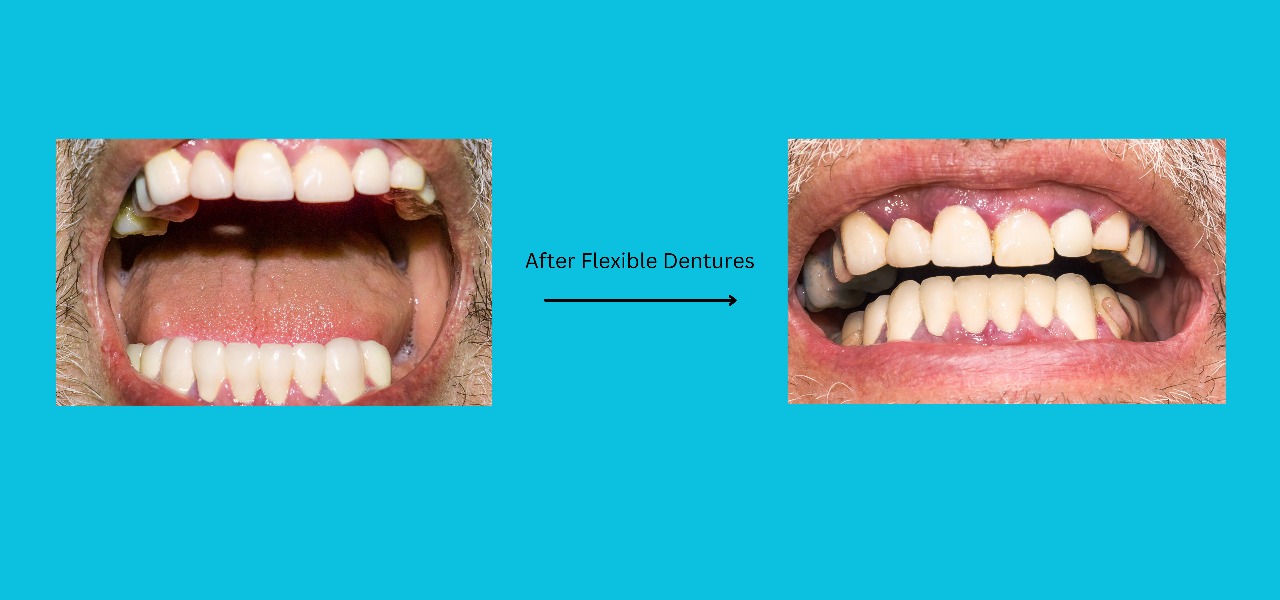
Flexible dentures are made from soft, pliable material. They bend easily and are designed to take the exact shape of your gum. Unlike regular dentures, which are rigid and can easily cause dental sores, these are a better alternative. They are thinner than the regular dentures, minimising discomfort.
One of the drawbacks of the old regular dentures was that they often cracked or broke. On the other hand, flexible dentures are made from a flexible material, such as thermoplastic resin, that is resistant to wear and tear. They are impact-resistant if dropped accidentally.
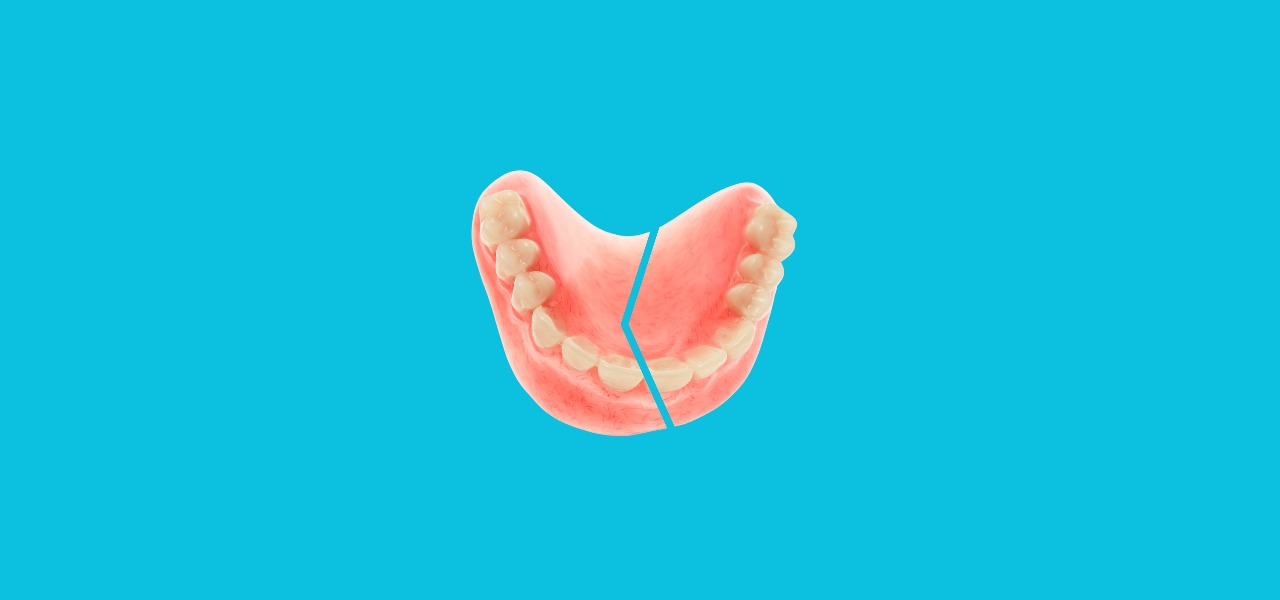
The flexible, pliable design of the dentures enables a more precise fit. As a result, this provides more stable and secure positioning of the prosthetic.
Flexible dentures are very easy to use. They fit your gums like puzzle pieces, forming your beautiful smile. They can be pulled out and reinserted into your mouth without adhesives or complex tools.
They are also easy to clean with a soft toothbrush and dental cleaner. They are often soaked in denture solution at night.
Compared with conventional dentures, the new flexible dentures are lighter, making them more comfortable because they don’t put pressure on the gums.
The flexible dentures, as mentioned before, are made from nylon-based thermoplastic resins. This material is unlikely to cause allergic reactions or irritation, unlike acrylic dentures, which can trigger symptoms such as redness, itching, and burning.
There are a couple of reasons why flexible dentures might not be the best option out there for some people.
If you have lost all your teeth, flexible dentures may not be suitable because they rely on healthy teeth for support and to fit properly in your mouth.
Compared with conventional dentures, flexible dentures are more expensive. The material and process are considered expensive for them.
We have already mentioned that these flexible dentures are very hard to break; if you were to break them, you would need to make new ones. Their flexible, pliable material makes them difficult to repair if they are damaged.
Once the teeth are fitted and the flexible dentures are set, it will be very difficult to adjust them if an issue arises. If anything changes in your teeth’s shape or their fit, you may need to get new ones.
Flexible dentures are custom-made for a reason: to keep teeth from moving or shifting and to replace missing teeth with a set of identical, functioning teeth. If the flexible denture is poorly fitting or the fit changes for any reason, you may experience mouth sores, irritation, difficulty eating, or infections.
Just as forgetting to brush your teeth or floss can lead to serious issues, forgetting to clean your dentures regularly can also cause serious problems. A few of the problems your teeth might face are fungal and bacterial infections, which can cause the remaining and healthy teeth to decay and cause other gum-related diseases.
It is made through a process called “injection moulding with thermoplastic nylon resin”. This process has several steps to fabricate your custom-made flexible dentures. If you are curious about how it is done, here is a glimpse of the technology used to make flexible dentures.
The dentist prepares dental putty, usually made from vinyl siloxane, silicone, and dental-grade materials. This putty is placed on a tray, then the tray is placed in your mouth, and you will bite on it for 3 to 5 minutes to capture your dental impression.
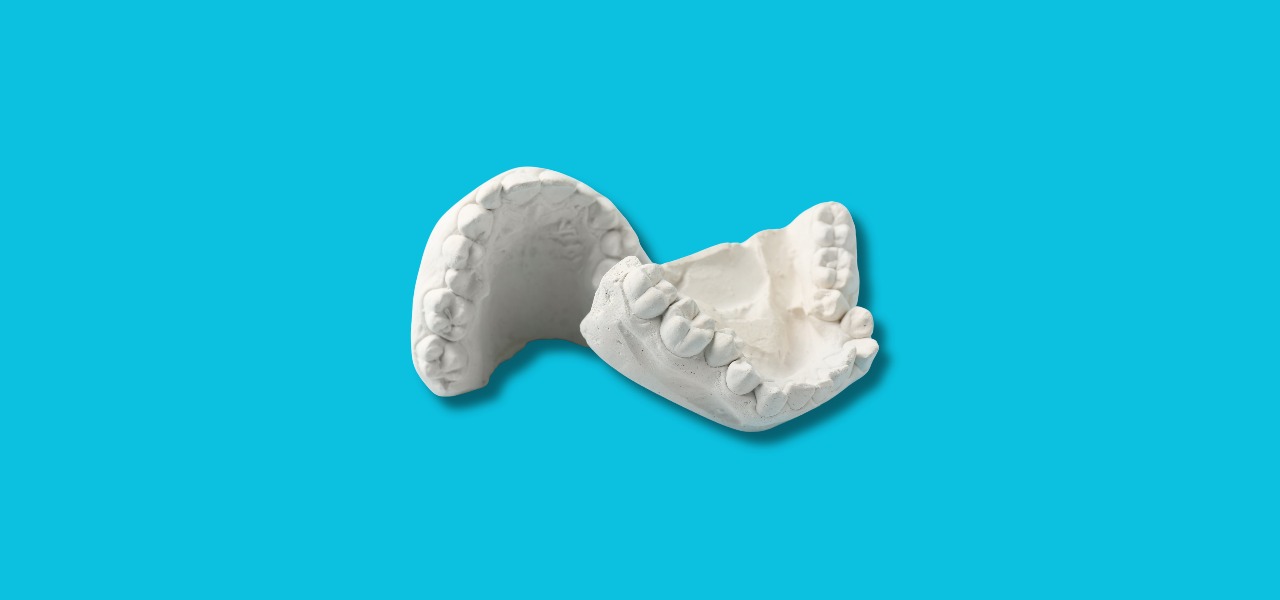
The dentist uses this impression to create a Wax model of your teeth. That will serve as the basis for creating the flexible dentures.
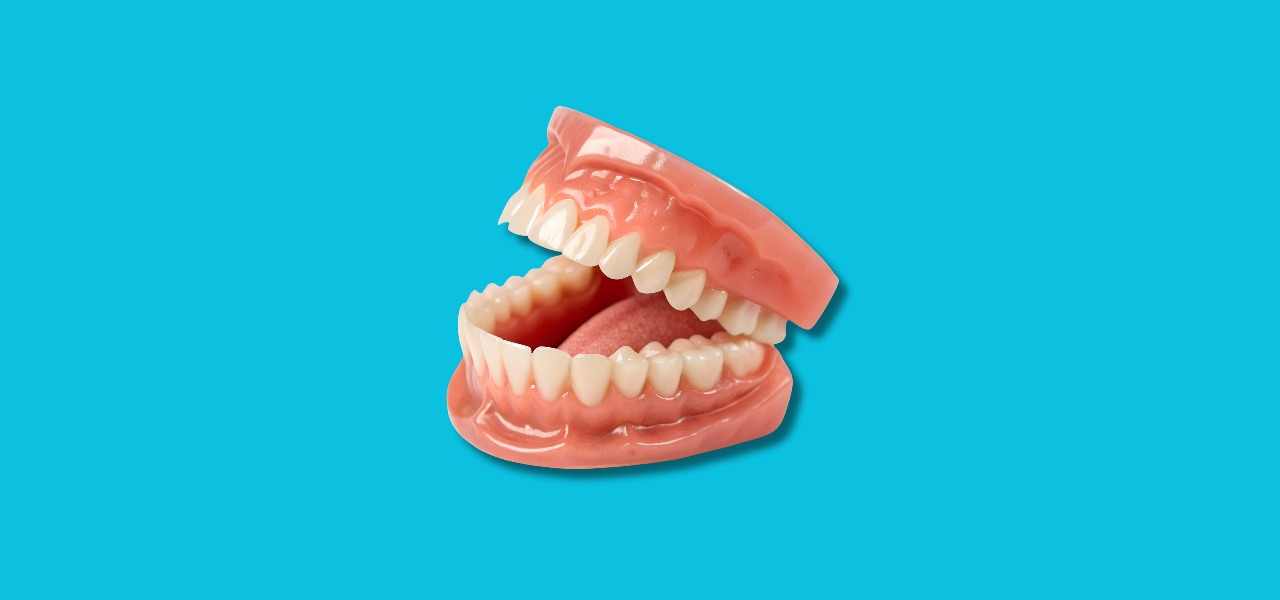
The Wax Model is put in a special injection flask. Then they dewax the mold and inject the thermoplastic nylon resin to create the dentures.
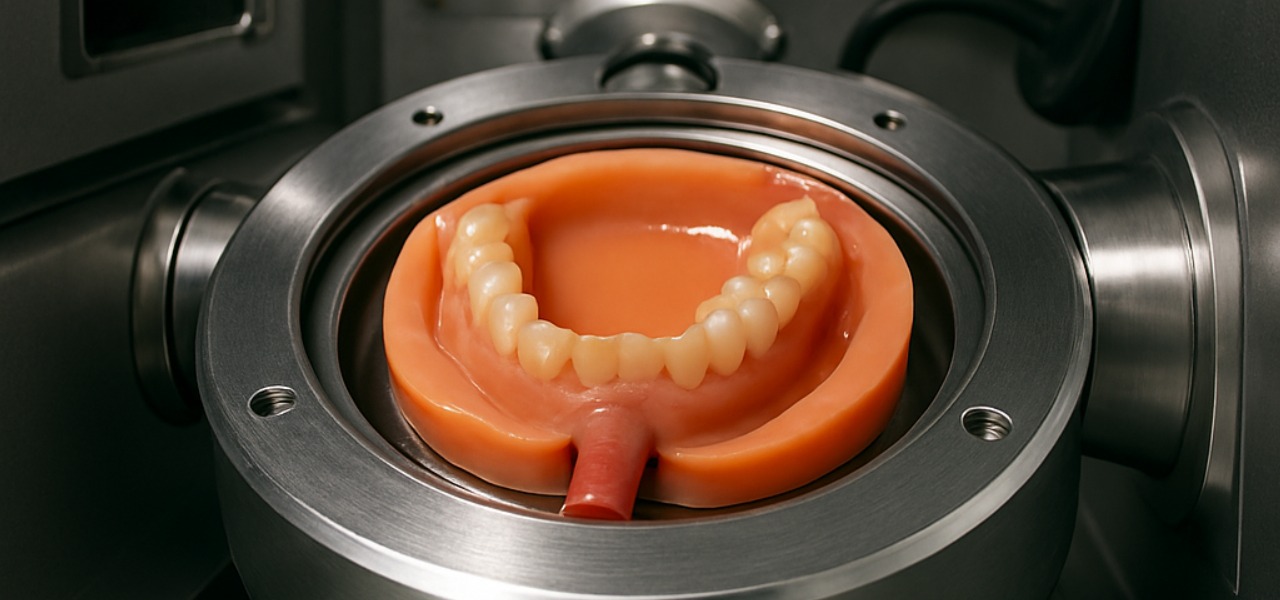
After retrieving the dentures from the flask, a valcinate bur is used to polish and refine the final product.
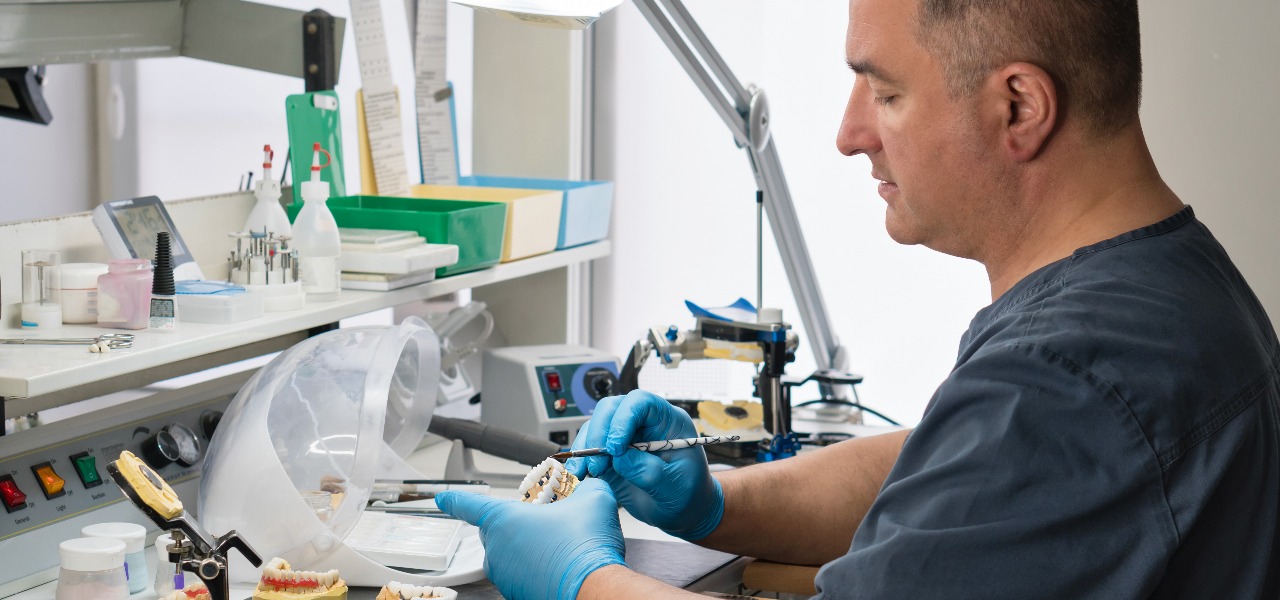
These are often the unseen steps required to fabricate flexible dentures, and there is an additional step if the dentures don’t fit your teeth; the dentist will address this as he sees fit.
The price of a flexible denture may be affected by several factors, including the number of teeth to be replaced, the complexity of the case (which may require specialised manufacturing techniques to create the perfect mould), and the materials used in manufacturing. Consequently, the higher the quality, the higher the cost.
Prices start at £600 and can reach £1995 per arch. They are costly, but ultimately worth every penny, given the value you get for the price.
As someone who prefers more permanent solutions, Flexible dentures are not my preference. We have discussed their issues previously, and having to get dentures every couple of years because my teeth have changed or broken down is inconvenient for me.
I understand that they are a non-invasive option, but I would choose an invasive option, such as dental implants, over dentures any day.
Dental implants are costly as well, but I think a one-off £ 3,000 payment is cheaper than a £900 flexible denture, which would be more expensive over time.
Flexible Dentures are a useful prosthetic option that can address several issues you may face after losing a few teeth. They are one of the top solutions, if not the best option, so far.
However, there are a couple of issues that can cause serious dental problems and may even lead to losing your healthy teeth if you don’t care for them.
Another issue is that they are not a permanent solution to your dental issues. It could cost you a fortune if we calculated the amount you might require for your lifetime.
